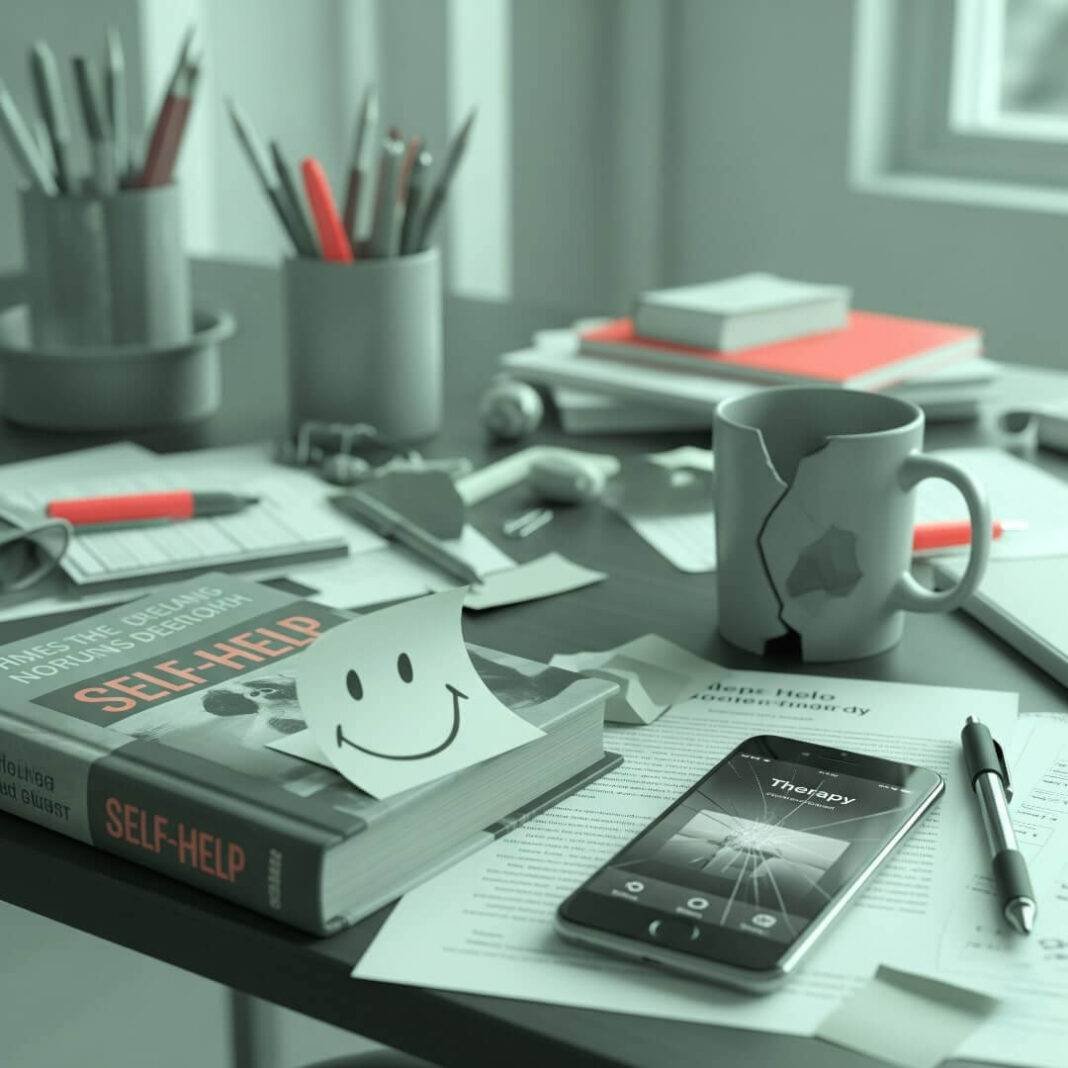So, finding mental health support is like trying to find your keys when you’re already late and your dog’s chewing your shoelaces. It’s messy, it’s stressful, and you’re kinda embarrassed to admit you need help. I’ve been there—curled up on my lumpy couch in my tiny Tacoma apartment, scrolling my phone at 3 a.m., wondering how to even start when my brain’s screaming, “Nope, we’re done.” That was last winter, and let me tell ya, it was a hot mess—but it taught me a ton. So, grab your coffee (or that sketchy energy drink from the corner store), and let’s chat about finding mental health support when you’re at your wit’s end.
Why Finding Mental Health Support Feels Like a Dumpster Fire
Okay, why is this so damn hard? You’d think in 2025, with apps for literally everything and Google knowing I bought socks last week, finding mental health support would be like ordering pizza. But nooo. It’s a maze—too many options, too much “therapist speak,” and that voice in your head (mine’s like my old math teacher, ugh) telling you to “just deal with it.” I remember sitting in my car outside a Walgreens, staring at a soggy French fry on the dashboard, realizing I hadn’t felt okay since, like, forever. My brain was a fog machine cranked to 11, and I was over it.
Mental health stuff isn’t one-size-fits-all, you know? Therapy works for some, but maybe you need a hotline, a friend, or just someone to say, “Hey, it’s okay to lose it over dropping your burrito.” I learned that the hard way when I bought a self-help book at a bookstore clearance sale. Spoiler: It sucked. I was still a wreck, just with a $12 book I used as a coaster.
Where to Start When You’re Falling Apart
So, where do you even begin? For me, it was a middle-of-the-night Google search—“finding mental health support near me.” Super original, right? But I was shook at how much came up. Hotlines, therapy sites, even apps that tried to make my anxiety into a video game. (Tried one of those. It was like playing Tetris with my existential dread. Hard pass.)
Here’s what I figured out after screwing up a bunch:
- Hotlines are clutch. The 988 Suicide & Crisis Lifeline is 24/7, free, and you can text or call. I called once, hands sweaty, expecting some automated voice, but the person was so nice I started bawling harder. They didn’t fix me, but they listened, and that got me through.
- Therapy directories. Sites like Psychology Today let you filter for therapists by location, insurance, or even personality (like, do you want someone chill or more no-nonsense?). I found a therapist in Tacoma who got my weird humor, which was huge.
- Local stuff. Your library or community center might have free support groups. I wandered into one near my place, expecting it to be cringey, but it was like group therapy with better coffee.

Asking for Help Is Awkward AF
Real talk: asking for help feels like admitting you forgot your lines in the school play. (Did that in 7th grade. Wore a pirate costume and just stood there mouthing “arrgh.” Mortifying.) I’m the type who’d rather YouTube “how to unclog a sink” than call someone, so admitting I needed mental health support felt like wearing a neon sign saying, “I’m a mess!” But nobody judges you like you judge you, you know?
I told my friend Mia I was thinking about therapy while we were at a diner, and I was tearing my napkin into tiny bits. I mumbled, “Is it weird to pay someone to hear me ramble?” She laughed and said, “Girl, I pay my barista to listen to me rant about my boss.” That cracked me up. Asking for help isn’t failing—it’s just being a person.
If you’re freaking out about it, start small. Text a friend. Call 988. Or, like me, write a dramatic-ass journal entry you’ll cringe at later. (Mine was, “WHY IS EVERYTHING THE WORST?” with a doodle of a grumpy cat.) Point is, reaching out is how you start finding mental health support, even if it feels like yeeting yourself into the void.
Therapy: Less Scary Than You Think
Therapy was my big “oh crap” moment. I signed up through BetterHelp, which is online and perfect for when you’re too wiped to leave your house. My first session, I was so nervous I knocked over my coffee mug孝. (RIP, my keyboard. Still not over it.) But my therapist, Jen, was super chill—she didn’t care that I was in pajamas with unwashed hair. She just said, “So, what’s up?” and I word-vomited for an hour.
What I learned about therapy:
- It’s not Hollywood. No creepy couch or “tell me about your childhood” vibes. It’s like talking to a friend who’s really good at listening.
- You might need to shop around. My first therapist kept pushing meditation apps, and I’m like, “Lady, I can barely remember to eat lunch.” Second therapist was a better fit. Keep looking if it’s not clicking.
- Insurance is your friend. Check your plan for mental health coverage. Mine covered most of my sessions, which was a shock. Call your provider—it’s a pain, but worth it.

When Therapy’s Too Pricey (I Feel You)
But what if you’re broke? I’ve been there—my bank account’s been on life support more times than I can count. When I got laid off last year, $120 sessions were not happening. Here’s what I leaned on:
- Sliding scale clinics. Some therapists charge based on income. I found one through a Tacoma nonprofit—$25 a session, which I could swing.
- Apps like Talkspace or 7 Cups. Not perfect, but cheaper. 7 Cups has free volunteer chats, which are great for a quick vent.
- Online communities. Reddit and Discord have mental health groups that can be super helpful. Just don’t share your whole life story, okay?
Oh, and random find? Mental health podcasts. I binged The Happiness Lab when I was scraping by, and it was like free therapy with better stories. Dr. Laurie Santos breaks down science stuff without making you feel dumb.
When It’s a Full-On Mental Health Crisis
Sometimes it’s not just “feeling meh”—it’s a crisis. Last December, I was on my balcony at 2 a.m., rain pouring (classic Tacoma), feeling like the world was collapsing. I texted 988, hands shaking, expecting nothing. The person who answered was so calm, asking me questions, not pushing me to “cheer up.” They just stayed with me until I could breathe again.
If you’re in that dark place:
- Don’t wait. Text or call 988. It’s free, anonymous, and they’re trained to help.
- Tell someone. I called Mia after 988, and she showed up with tacos and let me ugly-cry. One person in your corner changes everything.
- Know your triggers. Mine are late nights and too much coffee. Figuring that out helped me dodge some spirals.

Outbound Link :


































